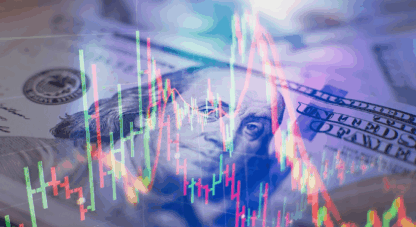Historically, people who have attained high levels of excellence, esteem, and estate have been noted for their high levels of discipline. All human activity is a mixed bag of success and failure, but minimizing failure and maximizing success is necessary for flourishing and progress in any area of life. And doing that requires discipline.
People are certainly free to disagree with this assertion, but those who do so tend not to have succeeded to any great degree in any field. For them, it’s easier to attack and tear down those who have toiled long, learned from mistakes, honed skills, and built value than it is to do such hard work themselves. “Redistribution” is their mantra, not “Responsibility.”
And though the fellowship of the diligent is much diminished from its heyday in America, it still exists. It’s battered, tainted by impostors, and having difficulty reproducing its character in the next generation, but it battles on.
Indeed, the bedrock of character has always been the foundation of this cohort. But discipline has fallen on hard times. The essence of woke ideology is that no one should ever be disciplined for anything, ever—except opposing woke ideology. (Funny how the refutations of so many manmade “absolutes” are established by the absolutes themselves. Another example: “There are no absolute truths.” Is that absolutely true?)
Even among many of those who do not identify with the woke movement, discipline is an unwelcome intruder. Warn a person about a hazardous behavior they are engaging in, and you are likely to hear, “It sounds like you’re judging me.” From such comments, from the rejection by the young of so many of their forebears’ views and habits, and from people’s comments on social media, you can see that the zeitgeist today is to do whatever one wants, whenever one wants, wherever one wants.
The problem is, that’s the road to ruin. It’s not posted, though many know exactly what it is. But if its travelers won’t hear any warning and they persist in traveling the road, they will arrive at the inevitable destination.
Why do we say all this? Is this an exercise in naval gazing, moralizing, panning the younger generation, or just grousing about the general state of things? Nothing could be further from the truth. The purpose here is contrast—and by contrast to highlight the virtues and rewards of discipline.
You are likely a person who loves discipline. This website and the analysis it offers are not entertainment. If you’re reading this, you likely want to improve your situation financially, and you know that doing so requires doing less of what doesn’t work and more of what does. That’s hard. Doing destructive things is easy. Being constructive is where the real work comes in.
The analysts below know that, and they don’t just know it theoretically. They’ve won. They’ve lost. They’ve learned. And they’ve taken a higher road. They’ve put in thousands and thousands of hours of hard work learning the things they tell you here at no cost to you, and obtaining and providing the substantive, valuable products they offer. Click on one or more of the links below to begin or continue your disciplined search for truth and value.
Key Takeaways:
- Risk matters
- Will China become a black hole for other economies?
- Business leaders see clouds on the horizon
- Is the silver/gold ratio about to reward ratio investors?
The McAlvany Weekly Commentary: David and Kevin note that the Economist deems American stocks to be at their most expensive point in decades based on “equity risk premium.” Over the past 30–50 years, the article notes, equities have paid almost five percent more to their owners than bonds did. Now, they’re about even—though the risk in owning them is immensely larger for equities. “So it’s reasonable to ask: Why, now, would you be interested in taking more risk without more compensation for that risk?” The hosts note that some people consider the high yields in bonds to be a sign of economic health while others consider them a sign of ill health. But sooner or later high interest rates impact mortgage backed securities, which affect mortgage loan rates. Too, the hosts note, there has been no safe-haven bid for Treasurys, which would bring their yields down. The impact of these developments is worldwide and could be very significant.
Credit Bubble Bulletin: Doug’s writing is often its own most eloquent descriptor and ardent advocate: “China’s Bubble deflation has entered the acceleration phase. Going forward, Crisis Dynamics will be increasingly unpredictable and difficult to control.” “It’s not hyperbole to warn that we are witnessing the collapse of arguably history’s greatest bubble. Up to this point, confidence has held that Beijing has everything under control. But as the Chinese people come to grips with unfolding apartment price deflation, this harsh reality will have them question their financial well-being, the soundness of China’s economy, future prospects, and the competency of their government. This blow to confidence will unleash the destabilizing next crisis phase.” In the 21st century, all economic ships are moored to China either directly or indirectly. If it sinks, it will take immense amounts of economic activity with it. Read Doug’s comments for details on how this situation has developed, how bad it is, and what it threatens to do.
Hard Asset Insights: A train engineer who looks only at his instrument panel for information on how well things are going is an accident waiting to happen. He will not notice the bridge out ahead. This week, Morgan focuses on leading indicators because they tell us what’s coming, not what’s here. Much of the financial community is focused on what’s here, not what’s coming. “Leading indicators do indeed lead with mechanical precision.” One of those indicators is the outlook of business owners and executives. Such people comprise one of the most influential groups in the business world. They see big problems in collections on Accounts Receivable, and they are the people responsible for hiring and firing decisions. Other leading indicators also detect clouds on the horizon. Read HAI for more on these key indications of where our economy is likely to go.
Golden Rule Radio: Tory and Miles host the program this week. They review gold’s action on the chart from the perspective of what they thought gold would do back in June. It did exactly what they thought it would, except— And it’s often the exceptions that matter. They thought gold would retrace to a Fibonacci level, which it did, but before going down it went up. That changed things a bit. Much ado about nothing? Certainly not. Tory clarifies: “We’re always seeking value—how many ounces for the dollar can you get?” And in that light, the hosts discuss the silver/gold ratio and its likely direction in the coming months. If all that sounds a little complicated, tune in to the show for details and explanation. The hosts also discuss the dollar’s recent action and the widespread downgrading of banks as money leaves them in search of higher yield. They mention MFG’s Vaulted program, which Miles notes is not a gold alternative, but a bank alternative for long-term savings.















